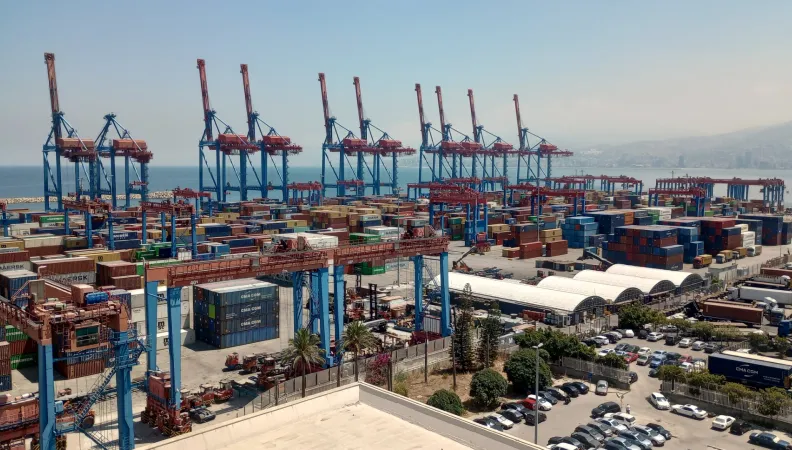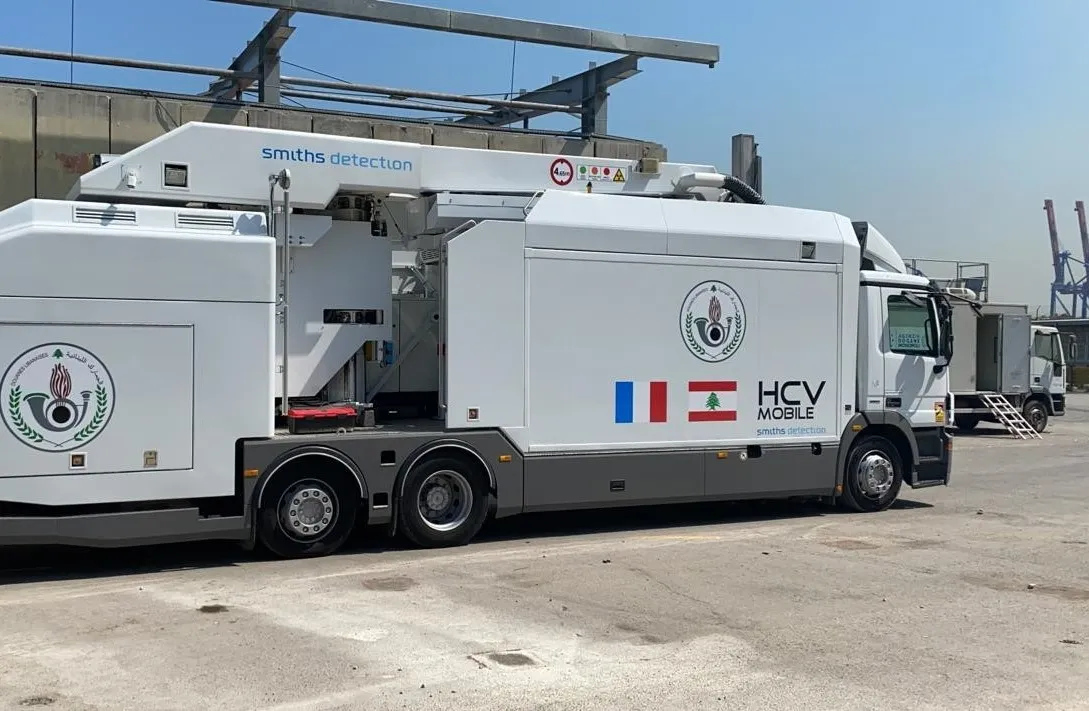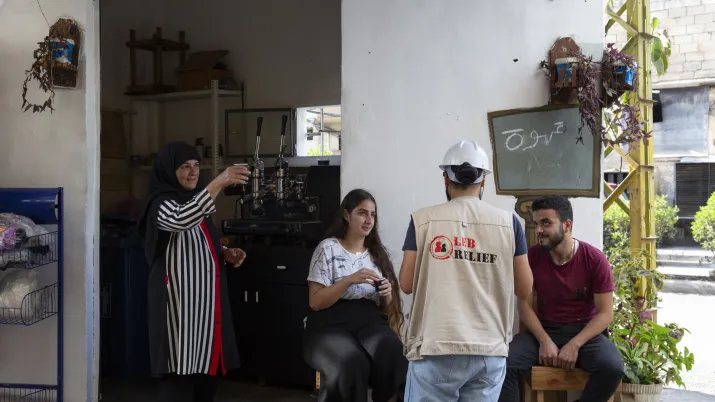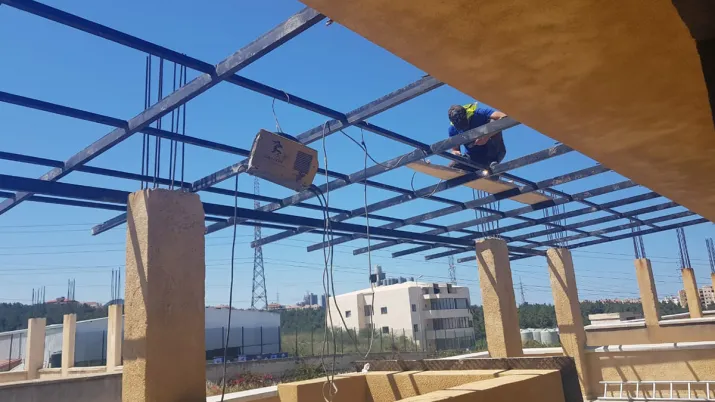Share the page
Support to the physical and institutional reconstruction of the Port of Beirut
Project
Published on

-
Project start date
-
Status
Closed
-
Project end date
-
-
Financing amount (Euro)
-
1.2M€
-
Country and region
-
Lebanon, Middle East
The main objective of the project is to contribute to the reconstruction of the Port of Beirut, the economic hub of Lebanon.
Context : the reaction of France and the international community following the Port of Beirut blast
The consequences of the double explosion that took place at the Port of Beirut on August 4, 2020 generated an outpouring of solidarity and assistance from the international community, and notably from France.
Quickly, conferences were organized to mobilize funds and coordinate international emergency aid to Lebanon. These have been supported by the United Nations, the European Union, the World Bank, other international organizations and partner states, including France.
French President Emmanuel Macron traveled to Beirut shortly after the explosion to express his solidarity with the Lebanese people.
To download
Main objectives of the project
It is within this framework that the Interministerial Mission for the Coordination of International Support to Lebanon (MICOL) requested Expertise France in October 2020 to bring together a multidisciplinary team of experts in charge of identifying the needs for the reconstruction of the Port of Beirut, in connection with the working groups set up by the World Bank.
Since then, Expertise France has worked to achieve three objectives:
- Support the general reform of port governance and the strategic discussions relating to the reconstruction of the Port of Beirut.
- Strengthen port safety and security, which are major economic and commercial assets.
- Support the strengthening of the IT capacities of customs authorities, who are essential players in economic recovery.
The necessary governance reform of the Port of Beirut
The Port of Beirut is currently managed by an interim committee called “Gestion et Exploitation du Port de Beyrouth (GEPB)”. Although the committee benefits from certain degree of autonomy vis-à-vis the Lebanese authorities, it is not considered a port authority stricto sensu. Its statute, established in the 1990s at the end of the civil war, has not been revised since its creation. Following recent events, a global reform of the management structure of the Port of Beirut is planned in order to bring it up to the international standards observed in the major ports of the world.
To promote the modernization of port governance, French technical assistance provides support to the Lebanese authorities by mobilizing specialized expertise and carrying out comparative studies. A partnership with the Grand Port Maritime de Marseille-Fos has, for instance, made it possible to conduct diagnostic field missions and to deepen some studies on modernization of the governance of the Port and its reconstruction.
Port safety and security: a priority and an important economic asset
Expertise France supports the Port of Beirut in its compliance with international port safety and security standards, such as the International Ship and Port Security Code (ISPS Code) and the International Maritime Dangerous Goods Code (IMDG Code).
The Port of Beirut is a strategic infrastructure of the Lebanese economy through which transits a major part of the country's imports and exports. The compliance with the ISPS Code guarantees the safety of goods and people, allowing the Port of Beirut to fulfill its role more effectively as a key transit point. In addition, the compliance with such code is a commercial advantage for the Port and, by extension, for the country's commercial policy. A port that meets international standards is perceived more favorably by shipping companies, importers, and exporters. Trust is an essential element of commercial relations, and a port that ensures the safety of goods and people is considered more attractive.
A first diagnostic mission was carried out in March 2021 by an expert from the Port of Le Havre to assess compliance with ISPS and IMDG standards at the Port of Beirut. In July 2021, a second mission allowed to present its findings to the various concerned actors and to propose actions to be implemented. Expertise France also organized a study visit to the major seaports of Le Havre and Marseille in October 2021, to discuss security issues. At the same time, certifying training in port security was offered to Port’s partners and all concerned interveners (Lebanese army, general security, customs authorities), in partnership with the Port of Le Havre as well as an accredited security company. Now, Expertise France is focusing on initiating a port security assessment, the first necessary step to achieve compliance of the Port of Beirut with the ISPS Code.
Dedicated port security activities have not yet started, but they will include an assessment of industrial risks and training in compliance with the IMDG Code for the concerned actors.
Customs administration, a major actor for economic recovery
The Port of Beirut is a major crossing point for import-export flows from Lebanon, and customs authorities therefore play a key role there. They facilitate the clearance of goods, and fight against fraud. By accomplishing their missions, customs authorities contribute to ensuring important tax revenues for the State and allow the population to access essential goods, such as food and raw materials which are mainly imported. However, due to the explosion of August 4, 2020, the Lebanese customs infrastructure and equipment at the Port of Beirut have been largely damaged. Thus, it seemed essential to aid customs authorities so that they can continue to fulfill their missions as efficiently as possible.
Expertise France provides assistance to Lebanon by contributing to recovering and strengthening its customs capacities. In July 2021, the donation of a mobile container scanner was made in order to restore the customs’ ort’s screening capacity at Port of Beirut in the short term. France is also committed to supporting a more comprehensive discussion on the structural reform of Lebanese customs sector, so it could be more effective in a context of economic recovery and long-term development. A final aspect of French aid consists in consolidating computer capacities of Lebanese customs authorities, specifically by financing the updating of their customs clearance software. The digitization of customs processes is essential to streamline customs clearance, as well as to track goods and therefore fight against fraud thanks to greater traceability.

On the same topic
EU Global Facility on Anti-Money Laundering and Countering the Financing of Terrorism (GF-AML/CFT)
Ongoing
2017 - 2026
Funders : European Union
SHABAKE – Building the capacities of Lebanese civil society organisations
Closed
2019 - 2025
Funders : Agence Française de Développement, Ministry of Foreign Affairs of Denmark, Ministry for Europe and Foreign Affairs of France
GRIL - Industrial risk management project in Lebanon
Closed
2020 - 2022
Funders : Ministry for Europe and Foreign Affairs of France





